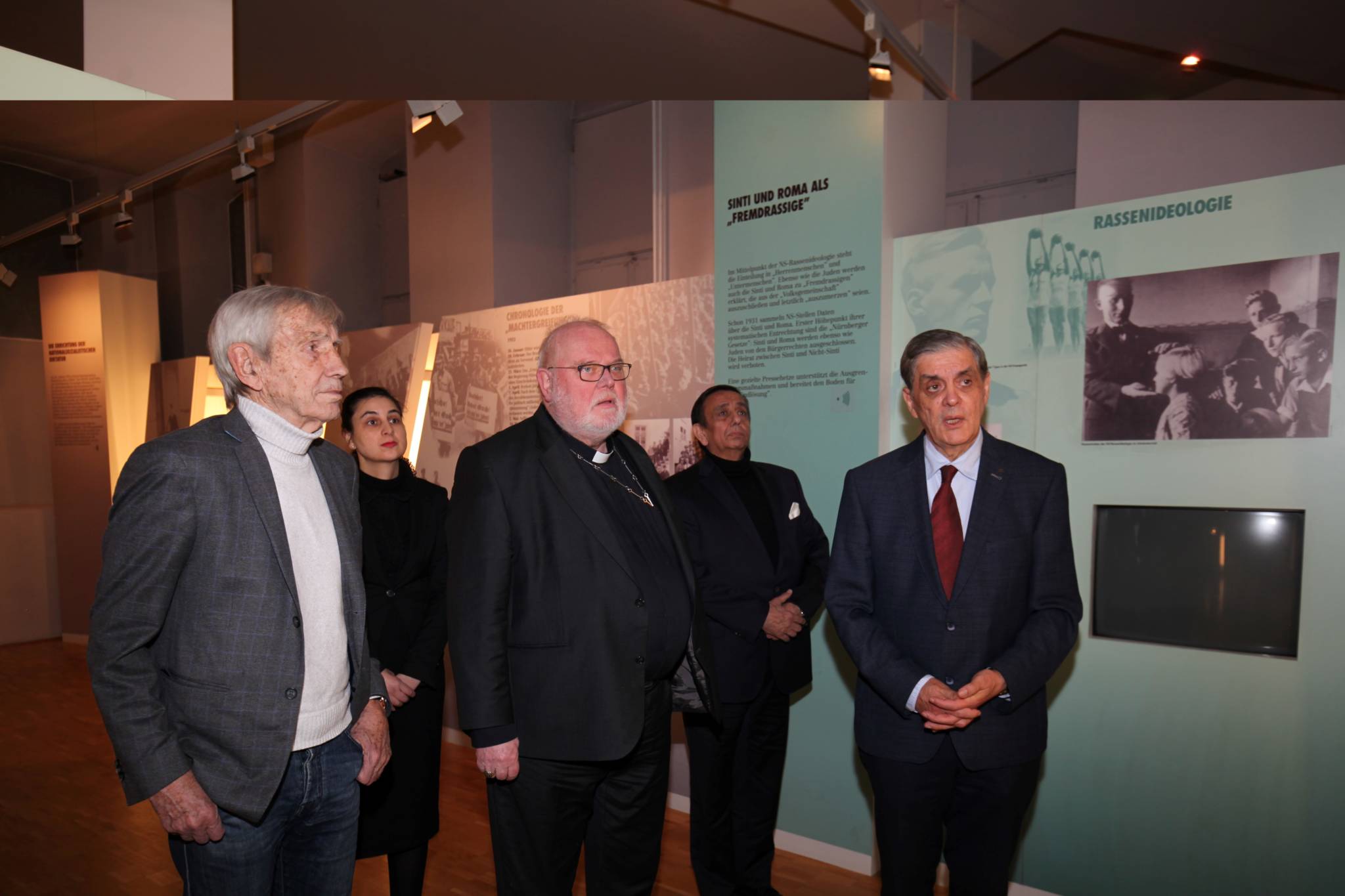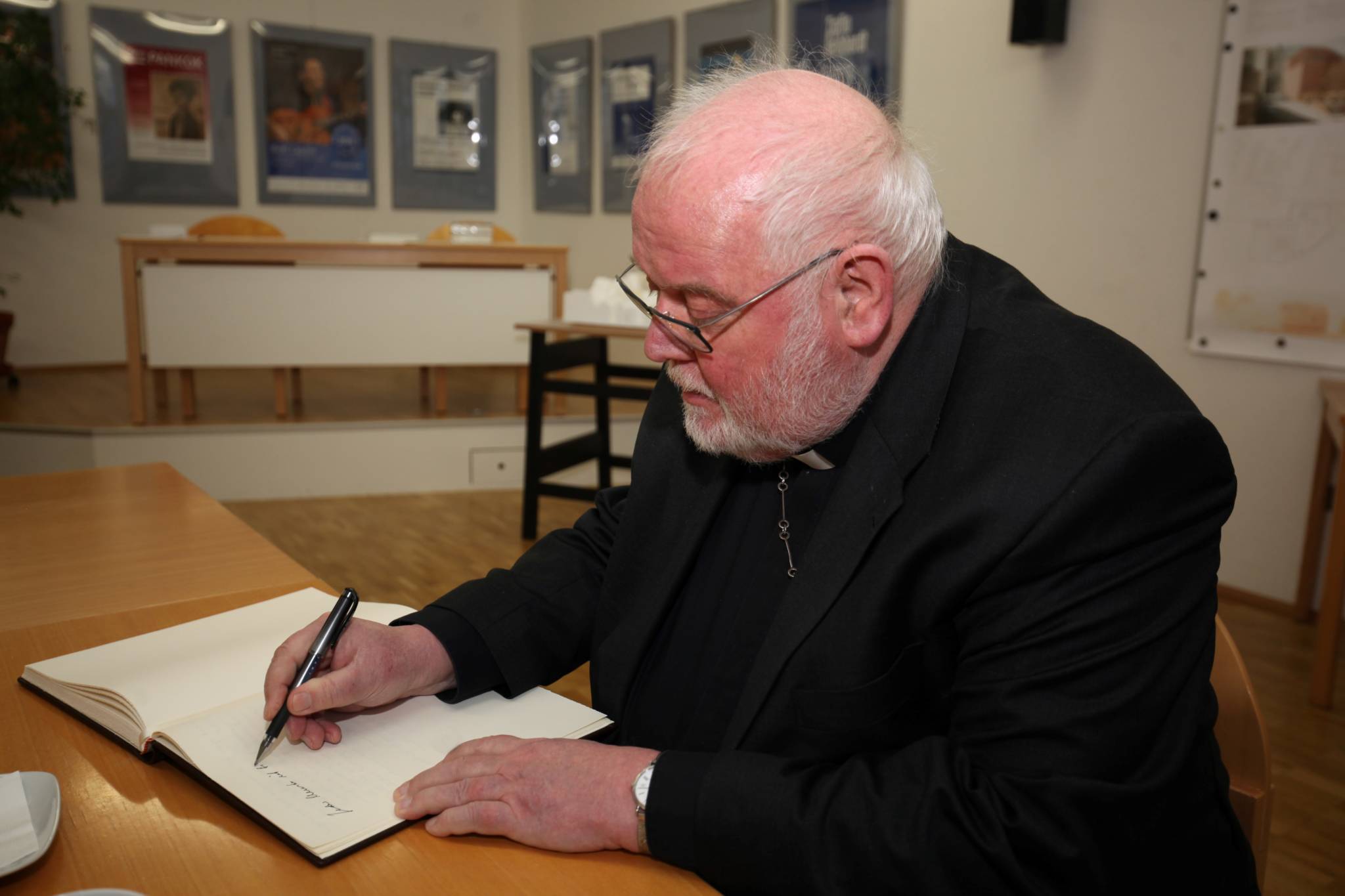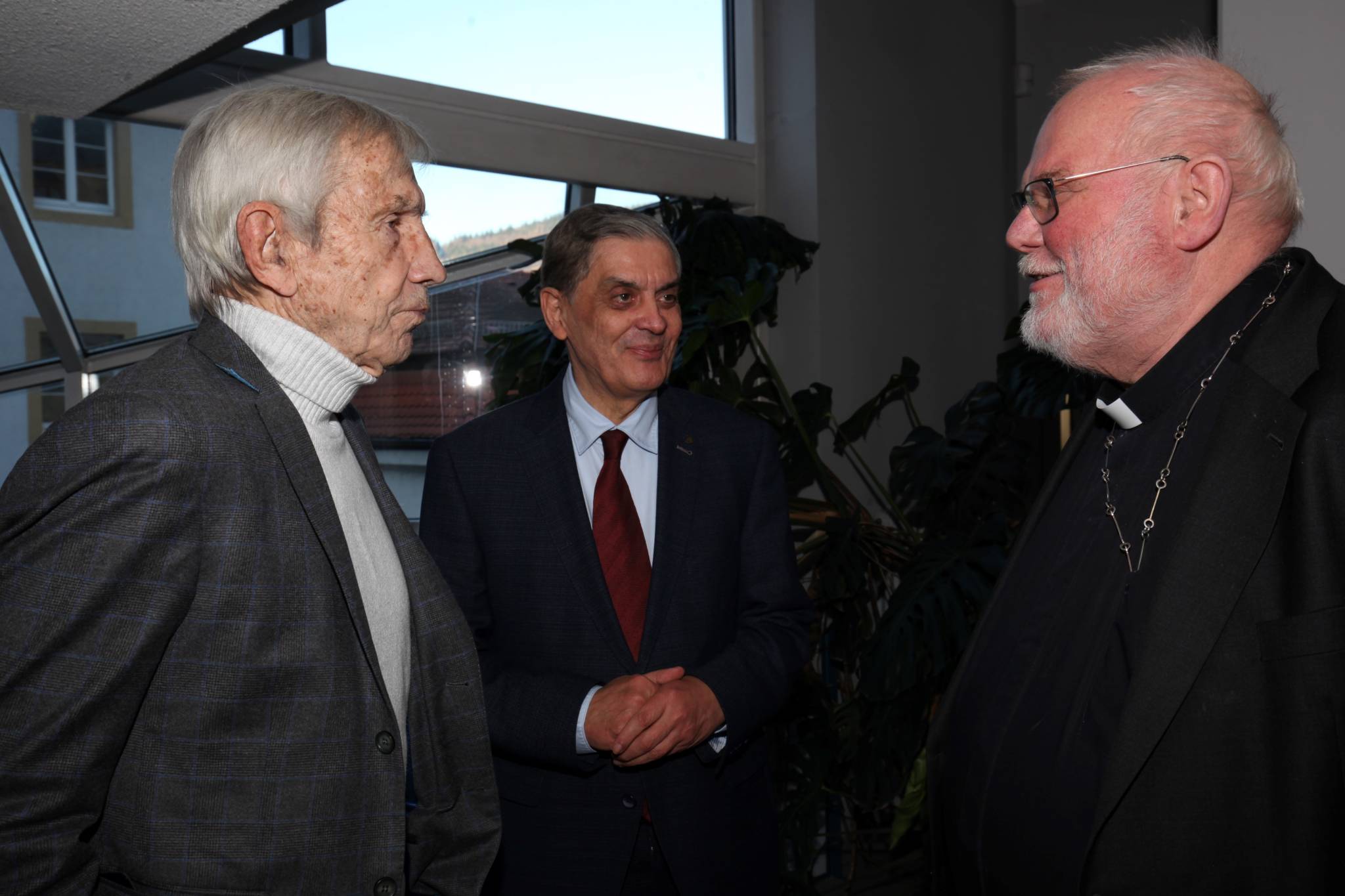
Cardinal Marx visited the Documentation and Cultural Centre of German Sinti and Roma in Heidelberg on February 7, 2023, at the invitation of Romani Rose, Chairman of the Central Council of German Sinti and Roma. After a tour of the centre’s permanent exhibition on the Holocaust of 500,000 Sinti and Roma in Nazi-occupied Europe, Cardinal Marx and Romani Rose agreed on the urgency of coming to terms with the role of the Church during the Nazi era.
The occasion of Cardinal Marx’s visit was the question of acknowledging the intervention of Oskar Wilhelm Rose on April 5, 1943, who, risking his life and using a false name, had gone to see Cardinal Faulhaber at his Munich residence to ask the Catholic Church for help.
On December 16, 1942, Reichsführer SS Heinrich Himmler had issued the Auschwitz Decree ordering the deportation of all Sinti and Roma still living in the German Reich to the concentration and extermination camp Auschwitz. Cardinal Faulhaber was not prepared to receive Oskar Rose, but recorded his visit to the Archbishop’s Palace in his diary, which has now been made accessible: “With Secretary a Gypsy, named Adler, Catholic – The 14,000 Gypsies in the Reich area are to be gathered into a camp and sterilized, the Church is to intervene. Wants to meet with me indeed – No, can’t hold out any prospect of help.”
Central Council Chairman Rose: “The sentence in Faulhaber’s diary proves my father’s courageous initiative and therefore seems to me like a symbol of the moral failure of the church leadership of the time, from which the predominantly Catholic Sinti families hoped in vain for protection and assistance in the face of imminent extermination. As we know today, the Catholic bishops at that time had precise knowledge of the dimension of the extermination of our minority. Remembering the initiative of Oskar Rose by placing a commemorative plaque on the Archbishop’s Palace would be an important acknowledgment on the part of the Church to rebuild lost trust.”

“It is important to remember this form of resistance and I am open to a commemorative plaque. The courageous attempt of Oskar Rose and the ignoring and speechlessness of the Church can be the starting point for a comprehensive historical investigation of the relationship of the Catholic Church with Sinti and Roma. For me, the goal is the reappraisal of history, but also the resulting responsibility and a public confession of guilt by the Church. As a church, we have a mission here that we have not yet fulfilled. In this, I consider myself to be particularly responsible as the successor of Cardinal Faulhaber,” said Cardinal Marx.
“I am pleased about the Cardinal’s willingness and openness to seek dialogue with the Central Council. I consider the scholarly reappraisal of antigypsyism, as it has been institutionally anchored for the first time in the world at the University of Heidelberg through its own historical research centre, to be extraordinarily important for awareness in the Church and society. The envisaged research project can represent an important milestone here,” said Dr. h. c. Manfred Lautenschläger, Chairman of the Board of Trustees of the Documentation and Cultural Centre of German Sinti and Roma.

Cardinal Marx and the Central Council advocate for a dialogue including the German Bishops’ Conference and are committed to launching an independent research project to address the issue of the Church’s guilt and failure toward Sinti and Roma.
Also participating in the conversation with Cardinal Marx were Erich Schneeberger, chairman of the State Association of German Sinti and Roma in Bavaria, and Dotschy Reinhardt from the Documentation and Cultural Centre of German Sinti and Roma.
More photos of the visit can be found here.
